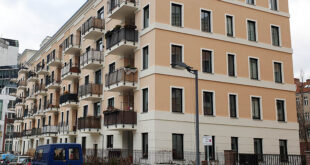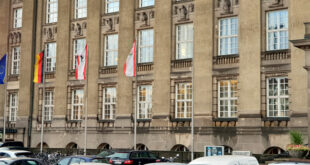In Germany complaints have long been heard from employers about a lack of skilled applicants. Some said jobs could be filled by migrants, while others warned that approach was naive. A new study has the facts, reports Marion MacGregor/InfoMigrants.
Large numbers of working migrants in Germany are in skilled jobs, according to a new study.
The Cologne Institute for Economic Research (IW), a German employer group, looked at employment figures for new migrants from eight main countries of origin – Afghanistan, Eritrea, Iraq, Iran, Nigeria, Pakistan, Somalia and Syria.
The study found that about 14,000 of this category of migrants are in formal work. Of those, around 60 per cent have skilled jobs. More than 9 per cent work in professions that generally require at least a diploma or master’s degree.
420,000 migrants seeking jobs
The study is based on data from the German employment agency, the Bundesagentur für Arbeit. At the end of November 2017, 420,000 refugees were registered there as job-seekers. 175,000 were registered as unemployed. The remainder were enrolled in integration or language courses or were completing courses through the employment agency.
The data show that a large proportion – three quarters – of migrants in work is employed by small and medium-sized businesses, rather than with bigger firms.
The study also found that most of the migrants in work are Syrians, followed by Afghans, Iraqis and Iranians. Of those from Afghanistan, more than half are working in high-skilled professions.
As of the end of March 2017, IW figures show that nearly a fifth of working migrants in lower-skilled jobs were employed in the service economy – as security guards, building supervisors, gardeners and landscapers. Nine per cent were with temporary work agencies, around 17 per cent worked in hospitality, 12.4 percent in business, and over 10 percent in health and social services.
IW researchers say they expect the proportion of migrants who can only find unskilled jobs – now 40 per cent of those from the main countries of origin – to grow in the future.
 THE AFRICAN COURIER. Reporting Africa and its Diaspora! The African Courier is an international magazine published in Germany to report on Africa and the Diaspora African experience. The first issue of the bimonthly magazine appeared on the newsstands on 15 February 1998. The African Courier is a communication forum for European-African political, economic and cultural exchanges, and a voice for Africa in Europe.
THE AFRICAN COURIER. Reporting Africa and its Diaspora! The African Courier is an international magazine published in Germany to report on Africa and the Diaspora African experience. The first issue of the bimonthly magazine appeared on the newsstands on 15 February 1998. The African Courier is a communication forum for European-African political, economic and cultural exchanges, and a voice for Africa in Europe.


































